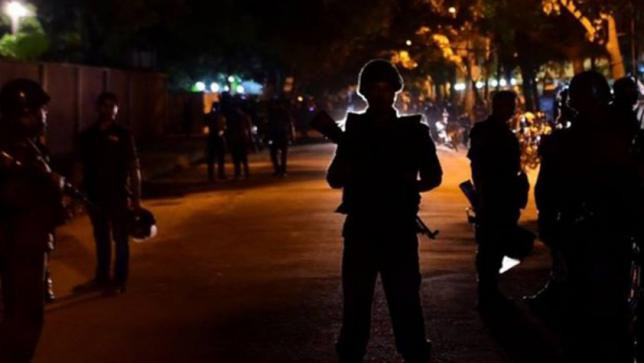Some effective measures

Global CT operators have learnt that there are three different types of politically inspired violence: a) terrorism b) insurgency and c) insurgent-terrorism. The fine line between terrorism and insurgency often remains blurred. While al Qaeda is primarily terroristic, the ISIS champions global insurgencies against all governments across the world. Hence it’s the most dangerous destabilizing force in the world.
As terrorism is often part of broader insurgencies – the terrorist JMB in Bangladesh is a surrogate to the global insurgency called ISIS – CT operators must apply counterinsurgency (COIN) methods as well. David Galula, the guru of COIN operators in the world (although this French expert came from the losing side of the War in Algeria), believes CT-COIN is “eighty percent political, and twenty percent military”. CT-COIN operators in Bangladesh must apply the concerted civil, military, paramilitary, political, economic, and psychological forces to counter terrorism.
Then again, CT-COIN operators mustn’t follow security studies manuals, blindly. One military historian has pointed out, most CT-COIN operations have failed to achieve anything as the losing side has written “99 percent” of their manuals. Hence the desirability of innovation or creativity! Again civil-military cooperation is an essential pre-condition for the success of any CT-COIN operation, so goes General David Petraeus’s Counterinsurgency Field Manual.
The line between terrorists and insurgents is getting blurred, very fast. In countries where terrorists and insurgents come from the main stream of the populations, there’s no guarantee about the success of any CT-COIN operations in those places. There’s no alternative to addressing the socio-political, and economic issues to resolve the problem of terrorism-insurgency in those countries. We know terrorism isn’t a law-and-order problem, and as such there’s no quick fix or police and military solutions to the problem. However, this information is a bitter pill to swallow for most government agencies in Bangladesh, and elsewhere.
Another stumbling bloc to successful CT-COIN operation is some politicians’ and law-enforcers’ disrespect for human rights, human dignity, and privacy of suspects having links with terrorists and insurgents in general. They simply don’t understand extra-judicial killings of suspects and criminals – through the proverbial “encounter” or “cross-fire” – further aggravate the problem of terrorism-insurgency.
To conclude, Bangladesh should use the globally recognised CT-COIN Manual, for example the one developed by the Asia-Pacific Center for Security Studies (APCSS), which is all about intrastate and interstate cooperation to contain and defeat terrorist-insurgencies in various countries in the Asia-Pacific region, including Bangladesh. While the Comprehensive Security Response to Terrorism (CSRT) method stresses the importance of intrastate civil-military and inter-agency cooperation, including intelligence sharing, the Advanced Security Cooperation (ASC) suggests interstate cooperation among civil-military and intelligence agencies at the international level.
Again, both the CSRT and ASC methods stress the importance of good governance, democracy, and respect for human rights as antidotes to terrorism and insurgency. CT-COIN operators in Bangladesh should learn, there’s no substitute for good governance, which is transparent and accountable, and ensures democracy, the freedom of expression, human rights and dignity. In sum, there’s no police or military solution to the problem of terrorism and insurgency.
Source: The Daily Star









